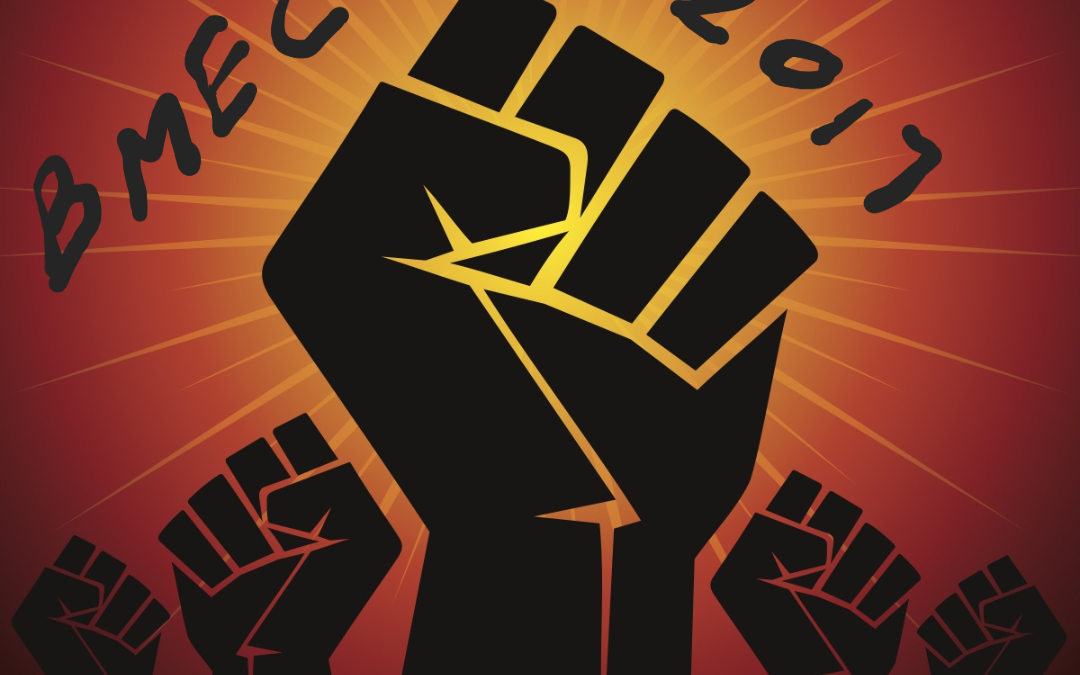Last weekend I had the opportunity to attend the inaugural National Black Male Educators Convening (BMEC) hosted by The Fellowship, a Philly group focused on increasing the number of black men in education. When I walked into the opening assembly, the first remark I heard the speaker tell the audience was “Your presence here is an act of protest.” This single thought that was offered by Vincent Cobb, a Fellowship leader, was what guided how I approached the entire day at the convention. I had to agree that even though I was clothed in a nice suit, new tie, and shined shoes, I was there to protest.
When I think about protest I think of a moment that is orchestrated to highlight an issue, challenge shortsighted notions, and disrupt norms. As a member of The BOND Project, a male educator’s group in Maryland, we decided to attend this convention because we are concerned that there are only two percent (Yes, I said TWO percent) of teachers nationwide that are black men. At the convention, every time we heard “2%”, all participants chanted in unison that “Is not enough!”, just as if we were in a live protest. Lets be clear, the purpose of protest is to make people listen and it was important that we were all bringing attention to this deficit and collectively calling for the growth and advancement of men of color in education.
Also, when protesting, individuals coalesce around a number of ideas and approaches to highlight why and what they are trying to achieve. I had the opportunity to present with my National Board Certified colleague, Kenneth Smith, on culturally relevant education from the male educator’s perspective. I was also able to hear fiery presentations from master teachers as well as national and local education leaders, many highlighting the importance of intentionality and finding the male educator’s voice in schools, community, and education policy. I took a moment to network with other groups such as New York City Men Teach and the Male Educator Network of Prince George’s County Public Schools. I was also able to pick up some everyday instructional practices from Dr. Daman Harris of The BOND Project and Principal David McGuire of Indiana. I wish there was more time to learn from more of these great educators. Attending this “protest” opened my eyes to the similar talents, passion, and vision that these 500 plus black men bring to the field of education.
Lastly, a protest is designed to empower, encourage, and motivate. Let me tell you; Synergy is real. With our nationwide numbers at 2% (Is not enough!) oftentimes we feel isolated in this profession. This “protest” exposed me to new voices and stories that (re)inspired me to carry on this important work. To be engaged with kindred spirits in the cause of education and social change was stimulating and invigorating. In spite of our low numbers, I left the convention excited to know that because of men of color great things are happening in schoolhouses and many kids have us as an important mirror for which to reflect upon.
In closing, similar to what Brother Cobb suggested at the beginning of the convention, I’d like to offer a thought. Protest is not always in the streets. Its not always unruly, chaotic, or lacking tangible outcomes. There were many calls to action and strategies shared on how to impact the profession and more importantly impact the lives of children for the better. I left the convention having taught and having been taught. I applaud The Fellowship for creating a venue for social awareness, advocacy, and action via education. In other words, thanks for providing a space for us to protest.


Well said. I too felt extremely empowered after attending the conference. It’s good to know that there are dedicated educators out there moving the needle to recruit and retain more men of color in the classroom. Our presence is needed not just for black and brown students but for ALL students. Thinking of increasing our presence in education as an act of protest is indeed powerful. Today I walk into my classroom with the proverbial fist held high…or maybe just take a knee. Either way, the fight continues.